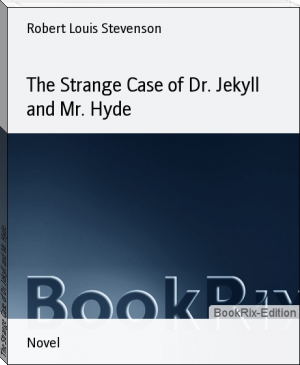Rilla of Ingleside by Lucy Maud Montgomery (the top 100 crime novels of all time .txt) 📕

- Author: Lucy Maud Montgomery
- Performer: 1594624275
Book online «Rilla of Ingleside by Lucy Maud Montgomery (the top 100 crime novels of all time .txt) 📕». Author Lucy Maud Montgomery
“Today was dark and cloudy and tonight is wild enough, as Gertrude says, to please any novelist in search of suitable matter for a murder or elopement. The raindrops streaming over the panes look like tears running down a face, and the wind is shrieking through the maple grove.
“This hasn’t been a nice Christmas Day in any way. Nan had toothache and Susan had red eyes, and assumed a weird and gruesome flippancy of manner to deceive us into thinking she hadn’t; and Jims had a bad cold all day and I’m afraid of croup. He has had croup twice since October. The first time I was nearly frightened to death, for father and mother were both away—father always is away, it seems to me, when any of this household gets sick. But Susan was cool as a fish and knew just what to do, and by morning Jims was all right. That child is a cross between a duck and an imp. He’s a year and four months old, trots about everywhere, and says quite a few words. He has the cutest little way of calling me “Willa-will.” It always brings back that dreadful, ridiculous, delightful night when Ken came to say goodbye, and I was so furious and happy. Jims is pink and white and big-eyed and curly-haired and every now and then I discover a new dimple in him. I can never quite believe he is really the same creature as that scrawny, yellow, ugly little changeling I brought home in the soup tureen. Nobody has ever heard a word from Jim Anderson. If he never comes back I shall keep Jims always. Everybody here worships and spoils him—or would spoil him if Morgan and I didn’t stand remorselessly in the way. Susan says Jims is the cleverest child she ever saw and can recognize Old Nick when he sees him —this because Jims threw poor Doc out of an upstairs window one day. Doc turned into Mr. Hyde on his way down and landed in a currant bush, spitting and swearing. I tried to console his inner cat with a saucer of milk but he would have none of it, and remained Mr. Hyde the rest of the day. Jims’s latest exploit was to paint the cushion of the big armchair in the sun parlour with molasses; and before anybody found it out Mrs. Fred Clow came in on Red Cross business and sat down on it. Her new silk dress was ruined and nobody could blame her for being vexed. But she went into one of her tempers and said nasty things and gave me such slams about ‘spoiling’ Jims that I nearly boiled over, too. But I kept the lid on till she had waddled away and then I exploded.
“‘The fat, clumsy, horrid old thing,’ I said—and oh, what a satisfaction it was to say it.
“‘She has three sons at the front,’ mother said rebukingly.
“‘I suppose that covers all her shortcomings in manners,’ I retorted. But I was ashamed—for it is true that all her boys have gone and she was very plucky and loyal about it too; and she is a perfect tower of strength in the Red Cross. It’s a little hard to remember all the heroines. Just the same, it was her second new silk dress in one year and that when everybody is—or should be—trying to ‘save and serve.’
“I had to bring out my green velvet hat again lately and begin wearing it. I hung on to my blue straw sailor as long as I could. How I hate the green velvet hat! It is so elaborate and conspicuous. I don’t see how I could ever have liked it. But I vowed to wear it and wear it I will.
“Shirley and I went down to the station this morning to take Little Dog Monday a bang-up Christmas dinner. Dog Monday waits and watches there still, with just as much hope and confidence as ever. Sometimes he hangs around the station house and talks to people and the rest of his time he sits at his little kennel door and watches the track unwinkingly. We never try to coax him home now: we know it is of no use. When Jem comes back, Monday will come home with him; and if Jem—never comes back— Monday will wait there for him as long as his dear dog heart goes on beating.
“Fred Arnold was here last night. He was eighteen in November and is going to enlist just as soon as his mother is over an operation she has to have. He has been coming here very often lately and though I like him so much it makes me uncomfortable, because I am afraid he is thinking that perhaps I could care something for him. I can’t tell him about Ken —because, after all, what is there to tell? And yet I don’t like to behave coldly and distantly when he will be going away so soon. It is very perplexing. I remember I used to think it would be such fun to have dozens of beaux—and now I’m worried to death because two are too many.
“I am learning to cook. Susan is teaching me. I tried to learn long ago —but no, let me be honest—Susan tried to teach me, which is a very different thing. I never seemed to succeed with anything and I got discouraged. But since the boys have gone away I wanted to be able to make cake and things for them myself and so I started in again and this time I’m getting on surprisingly well. Susan says it is all in the way I hold my mouth and father says my subconscious mind is desirous of learning now, and I dare say they’re both right. Anyhow, I can make dandy shortbread and fruitcake. I got ambitious last week and attempted cream puffs, but made an awful failure of them. They came out of the oven flat as flukes. I thought maybe the cream would fill them up again and make them plump but it didn’t. I think Susan was secretly pleased. She is past mistress in the art of making cream puffs and it would break her heart if anyone else here could make them as well. I wonder if Susan tampered—but no, I won’t suspect her of such a thing.
“Miranda Pryor spent an afternoon here a few days ago, helping me cut out certain Red Cross garments known by the charming name of ‘vermin shirts.’ Susan thinks that name is not quite decent, so I suggested she call them ‘cootie sarks,’ which is old Highland Sandy’s version of it. But she shook her head and I heard her telling mother later that, in her opinion, ‘cooties’ and ‘sarks’ were not proper subjects for young girls to talk about. She was especially horrified when Jem wrote in his last letter to mother, ‘Tell Susan I had a fine cootie hunt this morning and caught fifty-three!’ Susan positively turned pea-green. ‘Mrs. Dr. dear,’ she said, ‘when I was young, if decent people were so unfortunate as to get—those insects—they kept it a secret if possible. I do not want to be narrow-minded, Mrs. Dr. dear, but I still think it is better not to mention such things.’
“Miranda grew confidential over our vermin shirts and told me all her troubles. She is desperately unhappy. She is engaged to Joe Milgrave and Joe joined up in October and has been training in Charlottetown ever since. Her father was furious when he joined and forbade Miranda ever to have any dealing or communication with him again. Poor Joe expects to go overseas any day and wants Miranda to marry him before he goes, which shows that there have been ‘communications’ in spite of Whiskers-on-the-moon. Miranda wants to marry him but cannot, and she declares it will break her heart.
“‘Why don’t you run away and marry him?’ I said. It didn’t go against my conscience in the least to give her such advice. Joe Milgrave is a splendid fellow and Mr. Pryor fairly beamed on him until the war broke out and I know Mr. Pryor would forgive Miranda very quickly, once it was over and he wanted his housekeeper back. But Miranda shook her silvery head dolefully.
“‘Joe wants me to but I can’t. Mother’s last words to me, as she lay on her dying-bed, were, “Never, never run away, Miranda,” and I promised.’
“Miranda’s mother died two years ago, and it seems, according to Miranda, that her mother and father actually ran away to be married themselves. To picture Whiskers-on-the-moon as the hero of an elopement is beyond my power. But such was the case and Mrs. Pryor at least lived to repent it. She had a hard life of it with Mr. Pryor, and she thought it was a punishment on her for running away. So she made Miranda promise she would never, for any reason whatever, do it.
“Of course, you cannot urge a girl to break a promise made to a dying mother, so I did not see what Miranda could do unless she got Joe to come to the house when her father was away and marry her there. But Miranda said that couldn’t be managed. Her father seemed to suspect she might be up to something of the sort and he never went away for long at a time, and, of course, Joe couldn’t get leave of absence at an hour’s notice.
“‘No, I shall just have to let Joe go, and he will be killed—I know he will be killed—and my heart will break,’ said Miranda, her tears running down and copiously bedewing the vermin shirts!
“I am not writing like this for lack of any real sympathy with poor Miranda. I’ve just got into the habit of giving things a comical twist if I can, when I’m writing to Jem and Walter and Ken, to make them laugh. I really felt sorry for Miranda who is as much in love with Joe as a china-blue girl can be with anyone and who is dreadfully ashamed of her father’s pro-German sentiments. I think she understood that I did, for she said she had wanted to tell me all about her worries because I had grown so sympathetic this past year. I wonder if I have. I know I used to be a selfish, thoughtless creature—how selfish and thoughtless I am ashamed to remember now, so I can’t be quite so bad as I was.
“I wish I could help Miranda. It would be very romantic to contrive a war-wedding and I should dearly love to get the better of Whiskers-on-the-moon. But at present the oracle has not spoken.”
“I can tell you this Dr. dear,” said Susan, pale with wrath, “that Germany is getting to be perfectly ridiculous.”
They were all in the big Ingleside kitchen. Susan was mixing biscuits for supper. Mrs. Blythe was making shortbread for Jem, and Rilla was compounding candy for Ken and Walter—it had once been “Walter and Ken” in her thoughts but somehow, quite unconsciously, this had changed until Ken’s name came naturally first. Cousin Sophia was also there, knitting. All the boys were going to be killed in the long run, so Cousin Sophia felt in her bones, but they might better die with warm feet than cold ones, so Cousin Sophia knitted faithfully and gloomily.
Into this peaceful scene erupted the doctor, wrathful and





Comments (0)